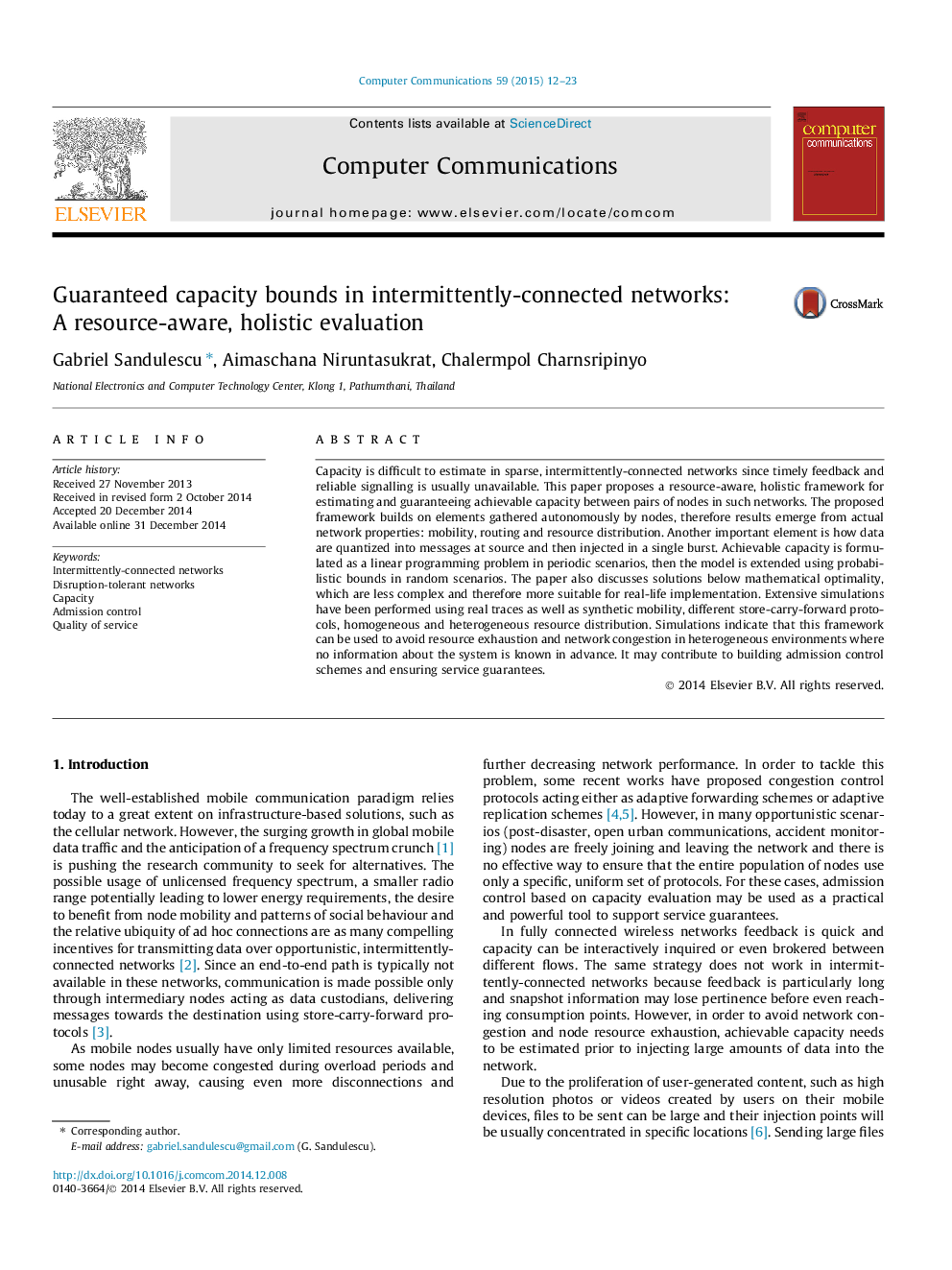| Article ID | Journal | Published Year | Pages | File Type |
|---|---|---|---|---|
| 447739 | Computer Communications | 2015 | 12 Pages |
Capacity is difficult to estimate in sparse, intermittently-connected networks since timely feedback and reliable signalling is usually unavailable. This paper proposes a resource-aware, holistic framework for estimating and guaranteeing achievable capacity between pairs of nodes in such networks. The proposed framework builds on elements gathered autonomously by nodes, therefore results emerge from actual network properties: mobility, routing and resource distribution. Another important element is how data are quantized into messages at source and then injected in a single burst. Achievable capacity is formulated as a linear programming problem in periodic scenarios, then the model is extended using probabilistic bounds in random scenarios. The paper also discusses solutions below mathematical optimality, which are less complex and therefore more suitable for real-life implementation. Extensive simulations have been performed using real traces as well as synthetic mobility, different store-carry-forward protocols, homogeneous and heterogeneous resource distribution. Simulations indicate that this framework can be used to avoid resource exhaustion and network congestion in heterogeneous environments where no information about the system is known in advance. It may contribute to building admission control schemes and ensuring service guarantees.
